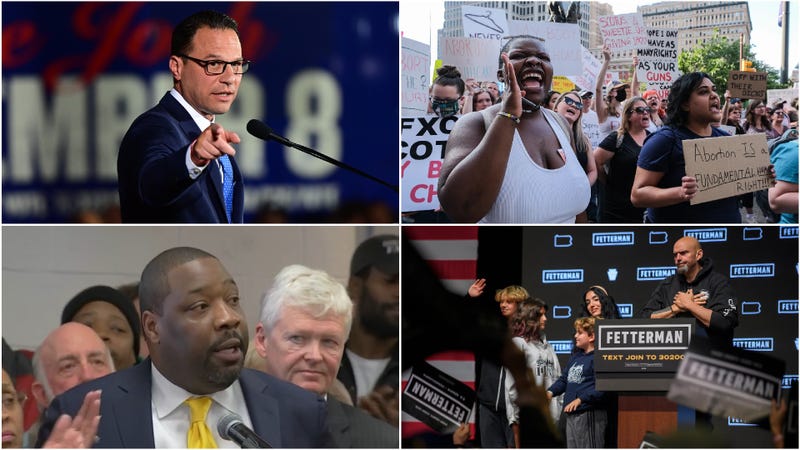
Roe v. Wade fires up Democratic base
The seeds of the Supreme Court’s change to the nation’s abortion laws were first made visible to the public in early May, when a leaked draft of the majority opinion written by Justice Samuel Alito provided the argument to overturn Roe v. Wade and allow states to outlaw or further limit abortion.
Organizers in Philadelphia and across America held rallies in response, while Democratic political leaders railed about the possibility of other personal freedoms being curtailed.
The Supreme Court officially struck down Roe v. Wade in June. In response, states like New Jersey and Pennsylvania, and cities like Philadelphia worked to solidify local abortion protections.
In the lead-up to the midterm elections, analysts debated how much abortion would motivate people to the polls, with some GOP arguments touting that inflation and the economy would hold more sway.
The so-called ‘red-wave’ never materialized, though, especially in Pennsylvania, which saw its two big races in the national spotlight.
Democrats performed extremely well in the state – a clear outlier compared to past cycles when a party holds power in the White House – with many voters citing abortion as their driving factor. It played a part in Democrat Josh Shapiro’s sizable victory in the governor’s race over Republican Doug Mastriano, who opposes abortion without exception.
The issue also played a key role in Democrat John Fetterman’s win over Republican Mehmet Oz, who flipped his position on abortion when running for the GOP nomination.
Kenney’s rant about the stress of his job

On the night of July 4, bullets that investigators say may have been fired from more than a mile away as part of “celebratory gunfire” grazed two law enforcement officers who were patrolling the Ben Franklin Parkway after the city’s Independence Day fireworks. It sent countless people sprinting away from the area to escape a perceived threat of more gunfire.
The incident came amid the city’s ongoing gun crisis following 2021’s record-setting year of homicides.
Mayor Jim Kenney showed a sense of exasperated frustration in a media gaggle hours after the incident.
“There’s not an event or a day when I don’t lay on my back and look at the ceiling and worry about stuff,” he said that night. “I’m waiting for something bad to happen all the time, so I’ll be happy when I’m not here, when I’m not mayor, and I can enjoy some stuff.”
A reporter followed up asking, “You’re looking forward to not being mayor?”
“Yeah, as a matter of fact,” Kenney replied.
Kenney attempted to walk back his comments the next day. He did not apologize, but said he should not have said those words.
“It’s my personality. It’s who I am and who got elected twice with 80% of the vote, and who intends to stay in office until the last day and help the next mayor transition to be a great mayor too,” said Kenney.
Council members and others harshly criticized the mayor’s words, with some calling for his resignation. Four of the most critical voices, including then-Councilmembers Allan Domb, Derek Green and Helen Gym, are now running to replace him.
Kenyatta Johnson prevails in two corruption trials

Federal prosecutors failed, not once but twice, to convict Councilmember Kenyatta Johnson and his wife Dawn Chavous of bribery.
Johnson and Chavous went on trial for the first time in March, along with two former executives of Kenny Gamble's Universal Companies, CEO Rahim Islam and CFO Shaheed Dawan.
Prosecutors accused Johnson and Chavous of taking a bribe from Islam and Dawan through a $66,000 contract between Universal and a consulting firm Chavous owned. Johnson then allegedly used his Council role to help Universal-owned properties in his district turn a profit.
Investigators took six years to build a case involving dozens of witnesses and thousands of documents. The trial – delayed for two years by the COVID-19 pandemic – lasted more than a month. The government admitted the evidence was circumstantial.
The jury deliberated for 25 hours over four days before announcing it could not come to a unanimous decision and the judge declared a mistrial.
The retrial in September closely resembled the first trial. There were no new facts or evidence. This time, though, Johnson, Chavous, and the Universal Companies executives were acquitted of all charges.
Mastriano rises to top of GOP gubernatorial field

For a third consecutive term, a Democrat will serve in the Pennsylvania governor’s office, a result that has Republicans in the state questioning how they pick their candidates.
In a crowded nine-person Republican primary in May, Franklin County state Sen. Doug Mastriano — who questioned Pennsylvania’s 2020 presidential election results, was on the grounds of the Capitol during the Jan. 6 insurrection but did not condone the deadly violence that happened, and received the endorsement of former President Donald Trump — received nearly 44% of the vote and won the primary by a double-digit margin over former Congressman Lou Barletta.
“Hats off to the state party for not putting their finger on the scale. Give it up to them. It wasn’t easy,” said Mastriano.
While the Pennsylvania GOP did not endorse a candidate before the primary, there was a last-minute push to try to stop Mastriano from winning the nomination, believing Mastriano was too far to the right to win a general election.
Just days before the primary, Pennsylvania state Senate president Jake Corman tried to throw his support behind Barletta.
“It's difficult. My name will obviously remain on the ballot,” said Corman. “I even asked my mother last night to vote for Lou.”
Too little, too late, as Mastriano ended up with more than twice as many primary votes as the second-place-finishing Barletta.
But Mastriano lost the general election to Democrat Josh Shapiro by a double-digit margin as well, leading GOP members to question thier candidate-selection strategy for the future.
“As Republicans, we need to definitely rethink how we're choosing our nominees coming out of the primaries,” said Republican strategist Christopher Nicholas.
“The Republican Party of Pennsylvania needs to stop doing the same thing over and over again, and think we’re going to win elections,” Delaware County Republican primary candidate David White added.
“They have to ask the question of, to themselves, what kinds of leaders do they want to elect?” Republican strategist Aaron Cohen said.
Shapiro trounces Mastriano running as a centrist
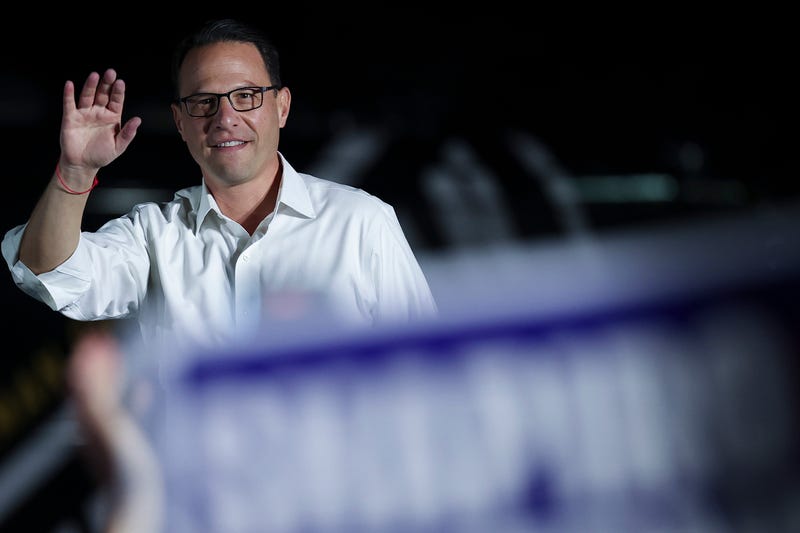
These questions come as Democrat Josh Shapiro, Pennsylvania’s attorney general, won the gubernatorial general election by nearly 800,000 votes and 14 percentage points.
Shapiro declared his candidacy in October 2021 and ran unopposed in the Democratic gubernatorial primary before facing Mastriano. In an effort to place Mastriano in voters’ eyes as a far-right candidate, Shapiro even paid for a commercial before the primary that Mastriano said would help him with former President Donald Trump’s base.
“My opponent, I think, will undo and undermine democracy,” Shapiro said to KYW Newsradio after the primary. "I'll continue to defend it."
Shapiro ran a relatively centrist campaign, garnering endorsements from nine state Republican political figures.
“We may not always agree on every policy position, but that is to be expected. His focus on improving our economy, strengthening our schools, and keeping our communities safe is what Pennsylvania needs now,” said former Lehigh Valley state Rep. Charlie Baker.
“Doug Mastriano, on the other hand, is an extremist who is a threat to the rule of law and the constitutional order.”
While touting traditional Democratic stances and opposing Mastriano’s conservative views on issues like abortion, LGBTQ rights and public schools, Shapiro has had a more centrist view of the role of law enforcement.
He has had his clashes with Philadelphia District Attorney Larry Krasner, including a lawsuit Krasner filed against Shapiro in 2021 over money from a national settlement with opioid producers. Meanwhile, Philadelphia’s Fraternal Order of Police Lodge No. 5, which often sides with Republican candidates, endorsed Shapiro for governor as it has in every race he has run since 2016.
In the end, Shapiro courting both progressives and law-and-order Republicans led to a coalition of supporters that gave him 56.5% of the general election vote, compared to just 41.5% for Mastriano.
Shapiro’s more-centrist actions have continued beyond the election with picks he has made for his transition team, which include some prominent Republicans mixed among traditional Democrats and progressives.
With Shapiro’s win, it’s the first time Democrats won three consecutive gubernatorial terms in Pennsylvania since the 1800s, and the first back-to-back terms for Democrats since George Leader (1955-59) and David Lawrence (1959-63).
Fetterman overcomes stroke to beat fellow Dems, Oz
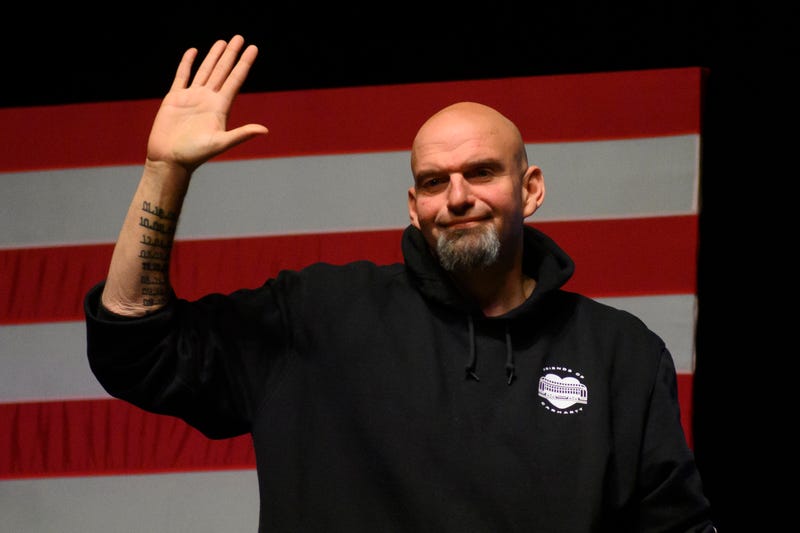
2022 saw perhaps the oddest U.S. Senate race in Pennsylvania history: A TV celebrity doctor versus the tattooed, hoody-wearing lieutenant governor who was recovering from a stroke.
There’s nothing like an open seat to attract lots of candidates, and the primaries to replace departing Sen. Pat Toomey drew a large field. Voters chose two of the least conventional candidates — Republican Oz, a retired surgeon with a daytime talk show, and Democrat Fetterman, the larger-than-life lieutenant governor who eschewed suits and ties for sweat socks and slides.
“Fetterman and Oz are more like brands,” public affairs consultant Larry Ceisler observed. “They’re more about the vibe you get from them.”
Both men faced challenges right out of the box. For Oz, a bruising primary left him with the lowest approval rating ever recorded for a statewide candidate. For Fetterman, a stroke suffered just before the primary left him unable to campaign for months.
Oz made use of his TV skills, staging small but dramatic events, like a visit to drug-ravaged Kensington in which he convinced a young man to seek treatment.
Fetterman returned to the campaign trail, favoring large rallies like one at a packed gym in Montgomery County.
“Who wants me to be the 51st vote?” ask Fetterman at the event. He held on to his voters but the race tightened, as Republicans accepted Oz as their candidate and forgot his missteps, like the notorious video of him grocery shopping at a store that he misnamed.
“I’m at Wegner’s because my wife wants some vegetables for crudité,” he’d said, playing into criticism that he was an out-of-touch elitist.
Both sides took to social media, particularly the Fetterman campaign by trolling Oz using his campaign’s own videos, including the “Wegner’s” incident.
Oz gained more ground after the single debate between the candidates showed Fetterman struggling to speak coherently.
By election day, polls showed Oz with a slight edge. He left his election night party when the race was still too close to call.
“We believe we will win this race,” Oz said at the time.
But about 90 minutes later, Fetterman was declared the winner.
“This campaign has always been about fighting for anyone who ever got knocked down,” said Fetterman, “that got back up.”
Congressional incumbents cruise to victory
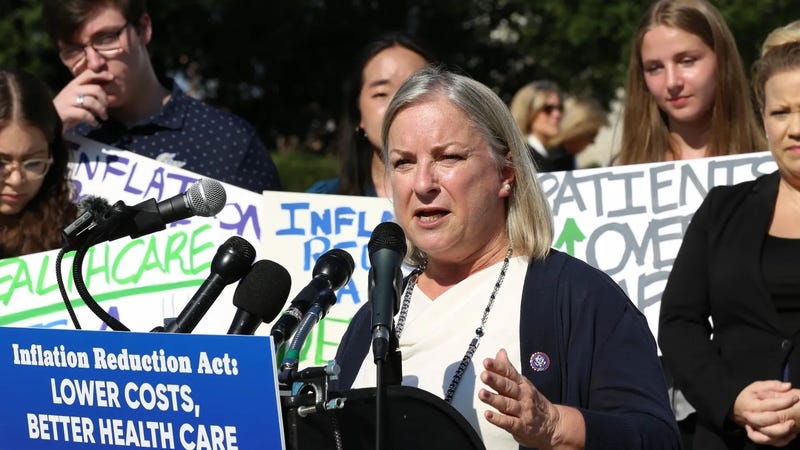
Every U.S. House incumbent from the Philadelphia area and South Jersey maintained their seats in the Nov. 8 midterm election.
The highest-profile race in Philadelphia and the collar counties saw Republican Brian Fitzpatrick keep his seat. He defeated Democrat Ashley Ehasz by nearly 10 percentage points.
Democratic incumbents Mary Gay Scanlon, Madeleine Dean, Susan Wild and Chrissy Houlahan also held on to their House seats. Wild’s race in Lehigh Valley’s 7th District was the closest, as she defeated Republican challenger Lisa Scheller by fewer than 6,000 votes.
Overall, Democrats now own a 9-8 majority of Pennsylvania’s House delegation. The power dynamic in the delegation changed dramatically after a 2018 ruling that the state’s congressional map was an unconstitutional gerrymander. Through the 2018 and 2020 election cycles, Democrats and Republicans split representation in D.C. 9-9. This year, the first with a new map drawn using the 2020 census, the state lost a congressional seat.
After a fight between legislative Republican leaders and Democratic Gov. Tom Wolf, the majority-Democratic Pa. Supreme Court chose a map earlier this year with similar contours to the 2018 version. For much of the 2010s, Republicans owned a 13-5 majority in the delegation.
South Jersey’s House members also kept their seats. Democrats Donald Norcross and Andy Kim fought off respective challenges from Claire Gustafson and Bob Healey, with Kim gaining a major advantage due to early voting. Republicans Jeff Van Drew and Christopher Smith also kept their seats by large margins.
Dems win enough seats for Pa. House majority
McClinton poised for historic first, but majority in limbo due to special elections

More than a month after the midterm elections, Pennsylvanians still do not know who is in control of the House of Representatives.
Both Democrats and Republicans are separately claiming they are in the majority.
It is up to the Commonwealth Courts to decide and, while both sides claim the decision is obvious, recent unfoldings suggest otherwise.
Democrats won 102 of the 203 House seats in last month’s election, giving them a one-seat majority, but former state Rep. Anthony DeLuca died right before the election, before his name could be taken off the ballot. Two state Reps. Austin Davis and Summer Lee, resigned as they won higher office.
Both Rep. Joanna McClinton, D-Philadelphia, and Rep. Bryan Cutler, R-Lancaster, have been sworn in and have claimed to be the new House majority leader.
McClinton scheduled special elections for Davis and Lee’s seats for Feb. 7, 2023, but Cutler said only the majority leader can schedule elections and filed for them to be in May, on Primary Election Day.
Philadelphia DA Larry Krasner impeached

In a process that began in June in the Pennsylvania House Judiciary Committee, a GOP-led group of lawmakers impeached Philadelphia District Attorney Larry Krasner and set a trial in the Pennsylvania Senate for January in a new legislative session.
Republicans claim in their impeachment case that Krasner, a progressive Democrat, “willfully ignored his constitutional duties,” has been involved in “despicable behavior” while in office, and has done little to stem the current tide of violence in Philadelphia.
The state House in November voted 107-85, mostly along party lines, in favor of impeachment.
GOP leaders first announced the inquiry into potential impeachment days after the South Street mass shooting, but said they had been working on the matter beforehand.
Krasner, who won his second term as district attorney in 2021 on a platform critical of law enforcement practices that lead to mass incarceration, filed a suit on Dec. 5 in Commonwealth Court against the GOP leaders attempting to remove him from office.
He argues that Pennsylvania law does not allow matters not completed in a previous legislative session to be carried over to the next session with a new group of lawmakers. He also says the state has no right to impeach city officials, and that his conduct in office does not rise to the level of “misbehavior in office” required under the Pennsylvania Constitution.
His supporters say impeachment based on lawmakers disagreeing with a DA’s prosecutorial judgment will set a dangerous precedent.
2023 mayor’s race heats up
Five City Council members resigned to run
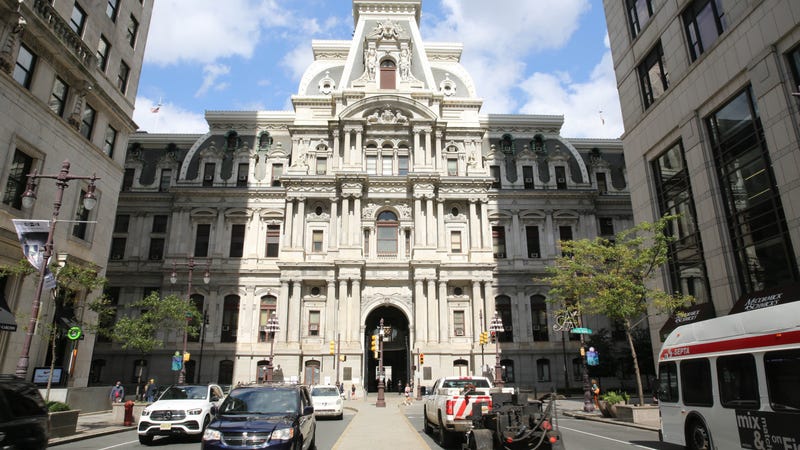
As of mid-December, 10 Democrats are pushing to be the next mayor of Philadelphia, a race likely to be decided in the May 16, 2023 primary. Mayor Jim Kenney is term limited.
The candidates include five City Council members who resigned to run: Allan Domb, Derek Green, Cherelle Parker, and Maria Quiñones Sánchez and Helen Gym. Controller Rebecca Rhynhart resigned in October and immediately became a candidate. (The City Charter prohibits elected City officials to run for a new office without first resigning).
Supermarket chain owner Jeff Brown has also entered the race, as has former Municipal Court Judge James DeLeon, Rev. Warren Bloom and state Rep. Amen Brown.
Public affairs consultant Larry Ceisler doubts there will be 10 candidates left by the May primary.
“What happens is, there’s almost a primary within a primary. There’s just going to be a natural process that’s going to weed candidates out,” said Ceisler.
Ceisler said those who can hang in until primary day will need a base of supporters, the ability to raise money and name recognition. He said current polling shows none of the candidates are very well known in Philadelphia.
